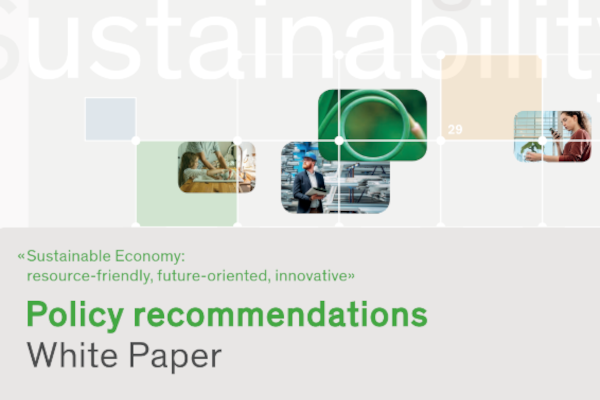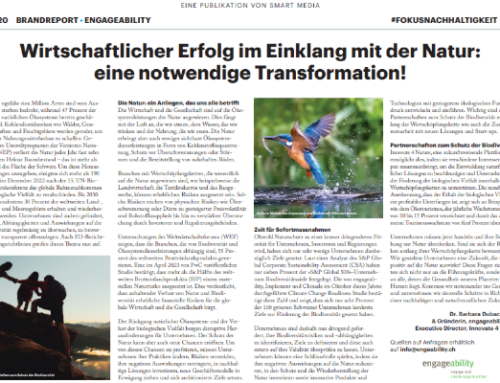Closing of NRP73
To mark its conclusion, the National Research Programme “Sustainable Economy: resource-efficient, future-oriented, innovative” (NRP 73) is presenting a white paper with recommendations to policymakers for the transition to a sustainable economy. Aimed at policymakers as well as the private sector and the public, the white paper provides an overview of policy frameworks as well as a set of recommendations and measures to accelerate the transition to a sustainable economy in Switzerland.
Zum Download:
A combination of different instruments is crucial
To attain an economy that protects our natural environment while preserving our well-bein, public authorities can employ a variety of policy instruments, including regulatory instruments such as bans and rules; market-based instruments such as taxes and fees; and behavioural interventions such as incentives and the provision of information.
The NRP 73 white paper provides science-based recommendations for political and economic decision-makers to aid them in paving the way towards a more sustainable economy. In the words of Gunter Stephan, Co-President of NRP 73: “Combining voluntary initiatives and legal incentives in the private sector creates a win-win situation where both nature and well-being are supported.”
Focus on five key areas
After five years of research, NRP 73 is presenting results that have been developed by researchers from different disciplines and often in collaboration with representatives from the private and public sectors and civil society. Regina Betz, Co-President of NRP 73, explains: “We have worked closely with partners from the private sector and other stakeholders. This resulted, for example, in the development of innovative, financially viable circular business models in the construction sector and with appliance manufacturers that close the resource loop and combine economic and environmental goals.”
Within the framework of NRP 73, research focused on the following five priority areas: food production and nutrition, circular economy, housing and construction, sustainable behaviour and consumption, and forest ecosystems.
In the priority area of food production and nutrition, it was determined that a change in diet from animal- to plant-based foods, following the recommendations of the Swiss Society for Nutrition, would both reduce the environmental impact by 36% and improve people’s health, while also being more cost-effective. On the production side, the researchers recommend promoting digital technologies as well as shifting agricultural subsidies to eco-efficient farms and environmentally friendly (e.g. plant-based) production. In developing trade measures, the government should adopt both a supportive and a restraining approach to promote market access for products with high sustainability value and discourage harmful production practices.
In order to achieve a climate-neutral and resource-efficient construction industry by 2050, the researchers recommend incentives for resource-efficient construction and housing. Important levers here are the use of renewable energies in buildings as well as the increased use of secondary materials such as wood and other building materials with a low environmental impact. At the same time, the acceptance of smaller living spaces has to be increased, especially among the over-50 age group. To this end, modular and adaptable buildings that can be adapted to individual situations (age, physical impairment, etc.) must be promoted.
These examples from different research areas make it clear that rethinking is necessary on the part of all stakeholders in order to promote innovative technologies on both the producer and consumer side. Policy must support this process with transparency and by promoting exchanges between – but also within – industries. At the same time, policymakers must provide incentives, but also regulate activities that are harmful to the environment.
Economic progress and social and environmental responsibility
The transition to a sustainable economy in Switzerland requires that economic progress be reconciled with greater social and environmental responsibility. In order to achieve this complex goal, NRP 73 recommends that Swiss policymakers should:
- promote sustainable technologies and innovations through sustainable financial instruments;
- include environmental impacts in market prices and improve policy coordination between government agencies;
- lead by example at the federal level by pursuing sustainable public procurement, redesigning subsidies and enforcing high environmental standards.
The transition to a sustainable economy furthermore requires transparent communication of conflicting goals and the political coordination of different sectors.
Find out more: here.




